MercoPress. South Atlantic News Agency
Tag: Venezuela
-
Wednesday, December 27th 2017 - 19:56 UTC
“Operación Genesis” calls to rebellion of military and police forces
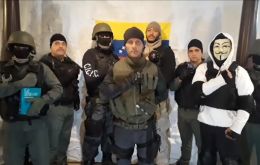
“Venezuela: God and Christ gave us the victory. Lets go to the streets to take our freedom” says Oscar Pérez, an ex-inspector of the CICPC, the national police force in a new video diffused by himself with a group of rebellious officials. In the video he calls on the population and the national security agencies to join them in the fight and rebel against the regime of Nicolás Maduro.
-
Wednesday, December 27th 2017 - 14:54 UTC
Gasoline, another kind of business in Venezuelan scarcity
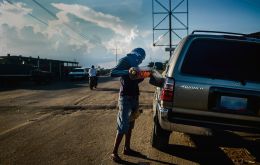
It is paradoxical how a country with the largest oil reserves in the world has a shortage of gasoline. Of course, Venezuela does not produce gasoline as such, but sells crude oil and imports gasoline, so with the sanctions imposed by various nations and the very crisis that PDVSA (State Company) suffers - which according to the unions works approximately 13% of its capacity- complicate the problem.
-
Wednesday, December 27th 2017 - 11:13 UTC
Cúcuta, the solution to many Venezuelans
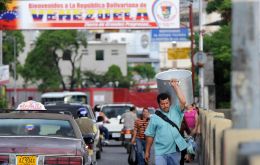
When it comes to getting medical treatments, temporary work, migration for a short time, buying food or making more money, Cúcuta has been the better option, if not the perfect one, it is the most practical, for many Venezuelans.
-
Wednesday, December 27th 2017 - 07:22 UTC
Canada insists in criticizing the Maduro regime despite diplomats expulsion incident

Canada has announced it is expelling Venezuela's ambassador to Ottawa, Wilmer Barrientos Fernández, and its charge d'affaires, Ángel Herrera. Foreign Minister Chrystia Freeland said the move was in retaliation for the expulsion of its most senior diplomat from Caracas over the weekend.
-
Sunday, December 24th 2017 - 09:39 UTC
Venezuela: some political prisoners in freedom

The National Constituent Assembly (ANC in Spanish) recommended to the Public Prosecutor and the Judicial Branch to release more than 80 political prisoners. At the moment, 13 of them have been released with precautionary measures.
-
Saturday, December 23rd 2017 - 12:01 UTC
Venezuelan minister praises China and lashes out at the US, in Beijing
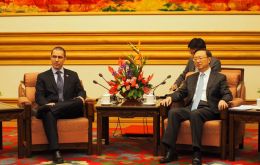
Venezuela’s foreign minister blamed the United States for his country’s spiraling debt crisis, saying Washington’s “permanent attack” had left the economy crippled. Jorge Arreaza lashed out at Donald Trump, US and European sanctions, and American interference in Venezuela’s internal affairs at the Venezuelan embassy in Beijing during a three-day official visit.
-
Saturday, December 23rd 2017 - 10:14 UTC
Venezuela's economy contracted a massive 16.5% in 2016, admits government
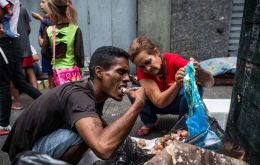
Venezuela's economy shrank a massive 16.5% in 2016, according to an official government filing to the US Securities and Exchange Commission (SEC). The oil-rich but impoverished country attributed the collapse to a contraction of 9.9% in the oil sector and 16.1% in the non-oil economy.
-
Friday, December 22nd 2017 - 23:09 UTC
Venezuela's shortage of cash means big business for some
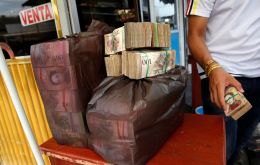
In view of the hyperinflation in their country, Venezuelans have developed “creative” forms of business.
-
Friday, December 22nd 2017 - 11:02 UTC
Macri sends message to the Venezuelan people and demands respect for human rights

Argentine president Mauricio Macri in Brasilia expressed full solidarity with the Venezuelan people, called for human rights respect and freedom for the political prisoners held by the regime of president Nicolas Maduro.
-
Friday, December 22nd 2017 - 09:17 UTC
Passports of 130 Venezuelan children deemed void - no Xmas family gathering for them
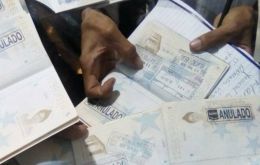
The Venezuelan government, through the first prosecutor of Vargas state and officers of the Autonomic Service of Identification, Migration and Foreign Affairs prevented the leaving of 130 children for Peru, where they were to meet with their parents last December 15.
